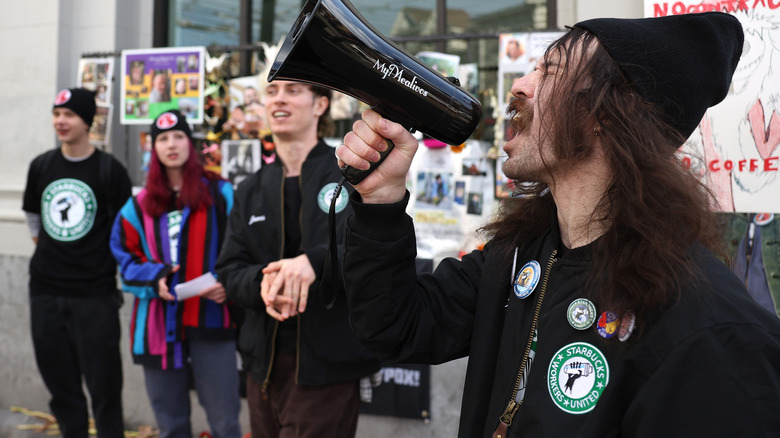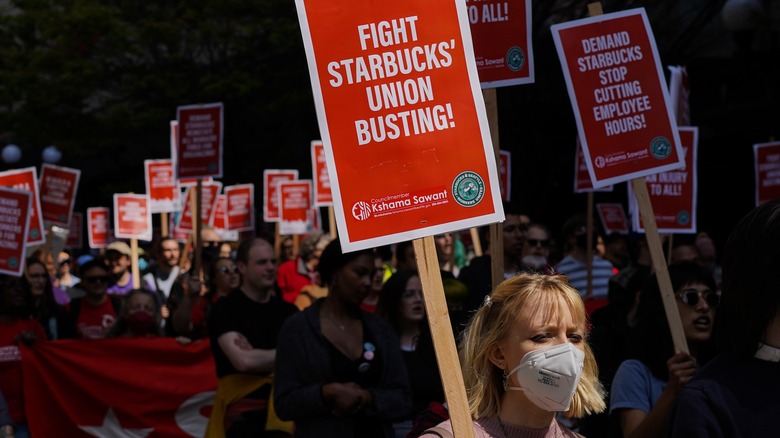Starbucks Workers Welcome New CEO With Nationwide Protest
Earlier this week, Howard Schultz stepped down from his position as Starbucks' interim CEO two weeks before expected. Schultz was originally scheduled to end this most recent of his three stints as CEO on April 1. But, in an open letter to Starbucks employees released on March 20, he announced his formal resignation, bowing out with a chilling will. "As I step away, I leave you all as the stewards, in service of all of our partners," wrote Schultz in the letter. "They are the heart and soul of our company — the living embodiment of human connection." "Partners" are what Starbucks calls its employees — the same baristas for which the National Labor Relations Board has filed over 80 complaints against Starbucks regarding unlawful anti-union practices.
The billionaire has been anything but shy about his unfavorable opinion of labor unions. Schultz has personally spoken out on multiple occasions against labor unions as a whole; meanwhile, just shy of 290 Starbucks stores have officially unionized since December 2021. Now that Schultz has stepped down from his position two weeks early and passed the torch to new CEO Laxman Narasimhan, tired Starbucks employees are seizing the opportunity to make their voices heard in what they're calling the "Day of Action."
Employees are ready for large-scale change, now
A mass demonstration of employees will take place outside Starbucks' Seattle headquarters, followed by a nationwide strike of more than 100 stores. The strike and the Seattle protest will both take place on Wednesday, March 22. Their demands? Workers will be protesting for "livable wages with consistent scheduling, safe and respectful workplaces, and the right to organize free from fear and intimidation." So far, Starbucks' violations of federal labor laws include monitoring vocal pro-union employees, unlawful terminations, harassment, threats, closing stores during their union elections, calling the police on workers, leaving union reps at the bargaining table, and other unprofessional union-busting tactics. The protest is also about sending a message to Narasimhan that this change is an opportunity for a large-scale company transition. The door is open for creating radical change in the pained employee-employer relationship for which Starbucks has gained infamy as of late.
Whether or not Narasimhan follows in his predecessor's footsteps, this demonstration is sure to shine a spotlight on Schultz's upcoming senate hearing. Last month, Senator Bernie Sanders and 10 other U.S. senators invited Schultz to appear before the U.S. Senate to answer for his track record of anti-union activities. After refusing the initial hearing, then being threatened with a subpoena, Schultz will appear on the new date set for March 29 — and employees are sure to be eagerly watching from behind the picket line.

